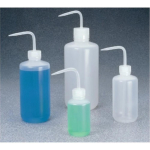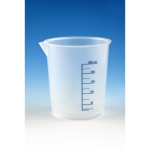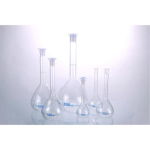Analysis Note
Specific Activity: Human FGF-b is fully biologically active when compared to standards. The ED50 was determined by the dose-dependent stimulation of thymidine uptake by NIH3T3 cells expressing FGF receptors.
Application
For most in vitro applications, bFGF exerts its biological activity in the concentration range of 0.1 to 10.0 ng/mL. Responding cells are (partial list): Endothelial, mesenchymal cells. Human ES cells require concentrations in the range of 4 to 100 ng/ml, depending on the method of culture
Disclaimer
Unless otherwise stated in our catalog or other company documentation accompanying the product(s), our products are intended for research use only and are not to be used for any other purpose, which includes but is not limited to, unauthorized commercial uses, in vitro diagnostic uses, ex vivo or in vivo therapeutic uses or any type of consumption or application to humans or animals.
General description
Product Source: expressed in E. coli
Fibroblast Growth Factor-basic (bFGF) is a heparin binding growth factor which stimulates the proliferation of a wide variety of cells including mesenchymal, neuroectodermal and endothelial cells. bFGF also exerts a potent angiogenic activity in vivo. Human bFGF is a 17.2 kDa protein containing 155 amino acid residues. Xu, et al. demonstrated that bFGF synergizes with the BMP antagonist noggin to sustain undifferentiated proliferation of human embryonic stem (hES) cells under feeder-free conditions. GF003AF was developed without animal-based ingredients and can be used for the culture of hES cells in a feeder-free, animal-free culture system.
Legal Information
CHEMICON is a registered trademark of Merck KGaA, Darmstadt, Germany
Physical form
Lyophilized from a solution of 5mM Tris, pH 7.6 with 150 mM NaCl.
Storage and Stability
Maintain the lyophilized material at -20°C until expiration date as stated on the label.
General applications:
After a quick spin, reconstitute in 0.1M phosphate buffer, pH 6.8, to a concentration of 0.1-1.0 mg/mL. Reconstituted bFGF should be stored in working aliquots at -20°C for up to six months. Multiple freeze/thaw cycles will result in significant loss of activity.
For Human ES cell culture:
After a quick spin, reconstitute to 10 µg/mL in a filtered solution of 0.5% BSA, 1 mM DTT, and 10% glycerol in Dulbecco′s PBS. Aliquot and store at -20°C for up to six months. This solution can then thawed and diluted to 4 ng/mL for the culture of human ES cells with a feeder layer, or to 8 ng/mL to supplement mouse embryonic fibroblast-conditioned medium (for feeder-free human ES cell culture).








